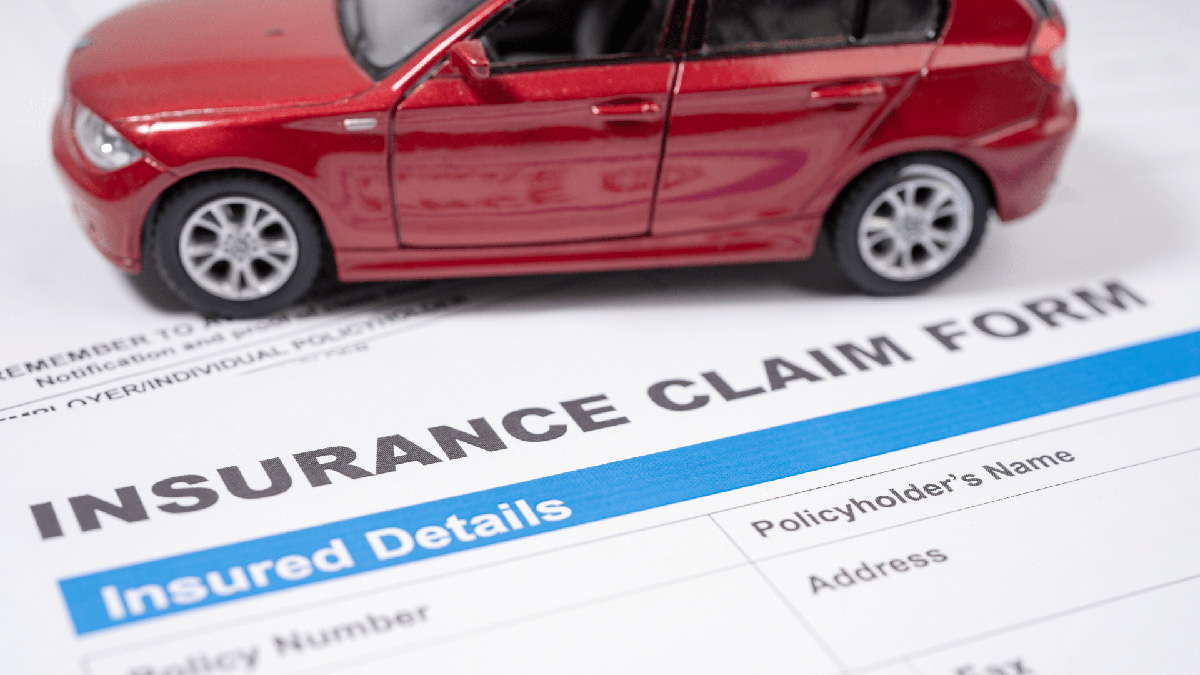

Finance
How Long Is A Car Insurance Policy?
Published: November 20, 2023
Find out the duration of a car insurance policy and how it affects your finances. Compare policies and make an informed choice for maximum savings.
(Many of the links in this article redirect to a specific reviewed product. Your purchase of these products through affiliate links helps to generate commission for LiveWell, at no extra cost. Learn more)
Table of Contents
Introduction
Car insurance is a vital component for any vehicle owner, providing financial protection and peace of mind in the event of accidents, theft, or other unforeseen circumstances. As a responsible driver, it is important to understand the ins and outs of car insurance policies, including their duration and the factors that determine their length.
In this article, we will delve into the various aspects of car insurance policy length, including the standard duration, factors that affect policy length, the process of renewing and canceling policies, and the availability of short-term insurance options. Whether you’re a first-time car owner or a seasoned driver looking to switch insurance providers, this information will help you navigate the world of car insurance policies with confidence.
Understanding the duration of a car insurance policy is crucial for budgeting purposes and ensuring continuous coverage. By knowing how long your policy lasts, you can plan ahead and avoid any gaps in protection.
Next, we will explore the factors that influence car insurance policy length. These factors can vary depending on the insurance company and individual circumstances, and they play a crucial role in determining the duration of your policy. By understanding these factors, you can make informed decisions when selecting a car insurance policy that suits your needs and budget.
Stay tuned as we explore each aspect in detail, from standard policy lengths and renewal processes to short-term options and changing insurance providers. By the end of this article, you will have a comprehensive understanding of car insurance policy durations and the important considerations involved.
Factors Affecting Car Insurance Policy Length
Several factors can influence the length of a car insurance policy. Each insurance company may have its own guidelines, but there are common determinants that you should be aware of when considering the duration of your policy.
1. Insurance Company Policies: Different insurance providers may offer policies with varying durations. While some companies offer standard policies lasting one year, others may provide options for shorter or longer terms. It’s important to inquire about the policy length options with your chosen insurance company.
2. State Regulations: Car insurance policies are also influenced by state regulations. Some states may require minimum policy durations, while others may have more flexibility. Familiarize yourself with the insurance laws in your state to understand any specific requirements regarding policy length.
3. Personal Preference: As a car owner, you may have personal preferences for the length of your insurance policy. Some may prefer shorter policies to have the flexibility of shopping around for better rates more frequently. On the other hand, others may opt for longer policies to avoid the hassle of frequent renewals. Consider your own needs and preferences when deciding on the duration of your policy.
4. Premium Payments: Car insurance policies are typically paid in installments, often monthly, quarterly, or annually. The length of your policy may be influenced by the payment frequency that you choose. For example, if you decide to pay your premium annually, your policy may automatically renew for a year. Discuss payment options with your insurance provider to understand how it affects your policy length.
5. Driving Record: Your driving record plays a significant role in determining your car insurance policy length. If you have a clean driving record with no accidents or traffic violations, your insurance provider may offer longer policy options. On the other hand, if you have a history of accidents or violations, your policy duration may be shorter, or you may face higher premiums.
It’s important to note that these factors are not exhaustive, and individual insurance companies may have additional considerations when determining policy length. It’s always beneficial to discuss your specific circumstances with your insurance provider to understand how these factors apply to you.
In the next section, we will delve into the standard length of car insurance policies and what you can expect when it comes to renewals.
Standard Car Insurance Policy Length
The standard car insurance policy length in most cases is one year. Insurance companies typically offer policies that have a duration of 12 months, providing coverage for a full year. This is the most common option and allows policyholders to have consistent coverage without the need for frequent renewals.
With a one-year policy, you have the advantage of locking in your premium rate for the entire duration. This means that, regardless of any changes in your circumstances or the insurance market, you will pay the same premium amount throughout the policy term.
At the end of the policy term, you will have the option to renew your policy with the same insurance company or explore other options available in the market. It’s important to note that renewal is not automatic, and you will need to initiate the process to continue your coverage.
During the renewal process, your insurance provider may review your driving record, claims history, and any changes in your circumstances. Based on this evaluation, they may adjust your premium rate or offer you a new policy term. It’s crucial to compare rates and options from different insurance companies to ensure that you are getting the best coverage at the most competitive price.
While one-year policies are the norm, some insurance companies may offer policies with shorter durations, such as six months. These shorter policies can be beneficial for those who prefer more flexibility in their coverage or have specific circumstances that require a shorter term.
It’s important to keep in mind that the standard policy length may vary based on factors such as state regulations and insurance company policies. Always consult with your insurance provider to understand the standard policy length offered and any specific considerations that may apply to your situation.
Now that we’ve explored the standard duration of car insurance policies, let’s move on to the next section, where we discuss the process of renewing a car insurance policy.
Renewing a Car Insurance Policy
Renewing a car insurance policy is a crucial process in ensuring that you maintain continuous coverage and stay protected on the road. As the expiration date of your policy approaches, it’s essential to be proactive and initiate the renewal process with your insurance provider.
When it comes to renewing a car insurance policy, there are a few key steps to keep in mind:
- Renewal Notice: Typically, your insurance company will send you a renewal notice prior to the expiration of your current policy. This notice will outline important details such as the renewal date, premium amount, and any changes to the policy terms. It’s essential to review this notice carefully to ensure that all information is accurate.
- Review Your Coverage Needs: Before renewing your car insurance policy, take the time to reassess your coverage needs. Consider any changes in your driving habits, vehicle usage, or household circumstances that may require adjustments to your coverage. It’s also an opportunity to evaluate your deductible amount and liability limits to ensure they still align with your needs.
- Compare Options: While you have the option to renew your policy with your current insurance provider, it’s wise to review other options in the market. Insurance rates and coverage options can vary between companies, so shopping around and obtaining quotes from multiple providers can help you find the best value for your coverage.
- Contact Your Insurance Provider: Once you have reviewed your renewal notice and evaluated other options, get in touch with your insurance provider. Inform them of your decision to either renew your policy or switch to a new provider. They will guide you through the necessary steps and provide you with updated policy documents.
- Payment and Confirmation: After confirming your renewal with your insurance provider, you will need to make the premium payment for the new policy term. Depending on your preferences and the insurance company’s options, you may have the choice to pay the premium in full or in installments according to the agreed-upon payment schedule.
Remember, renewing your car insurance policy is an opportunity to reassess your coverage and ensure that you have the right protection in place. Take the time to review your policy, compare options, and communicate with your insurance provider to make an informed decision that meets your needs.
In the next section, we will discuss the process of canceling a car insurance policy, should the need arise.
Cancelling a Car Insurance Policy
While renewing a car insurance policy is a common occurrence, there are instances where you may need to cancel your current policy. Whether you’re switching insurance providers, selling your vehicle, or no longer require coverage, it’s important to understand the process and potential implications of canceling your car insurance policy.
Here are the key points to consider when canceling a car insurance policy:
- Review Policy Terms: Before canceling your policy, thoroughly review the terms and conditions outlined in your insurance contract. Pay close attention to any provisions relating to cancellation fees, notice periods, and refunds.
- Contact Your Insurance Provider: Inform your insurance provider of your intention to cancel the policy. You may need to provide them with specific information such as your policy number, effective date of cancellation, and the reason for cancellation.
- Provide Notice: Some insurance companies require a written notice of cancellation. Ensure that you comply with their specific requirements regarding the format and delivery method of the notice.
- Possible Cancellation Fees: Depending on the terms of your policy, there may be a cancellation fee associated with terminating your coverage before the policy term expires. It’s important to understand these fees and factor them into your decision-making process.
- Refunds and Unearned Premium: If you have paid your premium in advance for the entire policy term, the insurance company may owe you a refund for the unearned premium. Unearned premium refers to the unused portion of your premium for the remaining policy term. Be sure to inquire about any potential refunds and the process for receiving them.
- Maintain Continuous Coverage: If you plan to switch to a new insurance provider, make sure you have a new policy in place before canceling your current one. Maintaining continuous coverage is important to avoid any gaps in insurance protection, which can result in higher premiums or potential legal consequences.
It’s crucial to carefully consider your decision to cancel a car insurance policy and assess any potential consequences. Keep in mind that going without insurance coverage can expose you to financial risks and legal liabilities, so it’s important to have alternative coverage in place if needed.
Now that we have discussed canceling a car insurance policy, let’s move on to the topic of short-term car insurance policies and their availability.
Short-Term Car Insurance Policies
While standard car insurance policies typically last for one year, there are situations where you may need coverage for a shorter duration. In these cases, short-term car insurance policies can be a useful solution. Short-term car insurance provides temporary coverage for a specific period, usually ranging from a few days to a few months.
Here are some common scenarios where short-term car insurance policies may be beneficial:
- Renting a Vehicle: If you’re planning to rent a car for a vacation or a business trip, short-term car insurance can provide the necessary coverage during the rental period. This allows you to have financial protection without relying solely on the rental company’s insurance options, which can be costly.
- Borrowing a Car: If you need to borrow a friend or family member’s vehicle for a short period, acquiring short-term car insurance ensures that you’re properly covered while driving the borrowed vehicle. This protects both you and the vehicle owner in the event of any accidents or damages.
- Test Driving: When purchasing a new or used car, you may want to take it for a test drive before committing to the purchase. Short-term car insurance can provide coverage during the test drive period, giving you peace of mind behind the wheel.
- Seasonal Vehicles: If you own a seasonal vehicle that is only driven during certain times of the year, such as a motorcycle or a classic car, you may choose to obtain short-term car insurance to cover those specific periods. This allows you to have insurance protection while the vehicle is in use and save on premiums during the off-season.
It’s important to note that short-term car insurance policies may have different coverage options and rates compared to standard policies. The duration and coverage limits can be tailored to your specific needs and circumstances.
When considering a short-term car insurance policy, it’s crucial to compare rates and coverage options from different insurance providers. This ensures that you’re getting the best value for your temporary coverage and that it aligns with your specific requirements.
Remember, short-term car insurance policies are designed to provide temporary coverage, and they should be used in situations where standard insurance policies may not be suitable or cost-effective. If you require coverage for an extended period, it may be more beneficial to opt for a standard policy.
Now that we have discussed short-term car insurance policies, let’s move on to the topic of changing car insurance providers and the considerations involved.
Changing Car Insurance Providers
Changing car insurance providers can be a strategic move to potentially secure better coverage and save on premiums. If you’re considering switching insurance companies, it’s important to understand the steps involved and the factors to consider during the process.
Here are some key points to keep in mind when changing car insurance providers:
- Evaluate Your Current Policy: Before making the switch, carefully assess your current car insurance policy. Review your coverage, deductibles, and premium rates. Identify any areas where you may need to make adjustments or areas where you are unsatisfied with your current coverage.
- Research Other Providers: Take the time to research and compare insurance providers. Look for companies that offer competitive rates, good customer service, and the coverage options you need. Be sure to read reviews and consider the experiences of others.
- Obtain Quotes: Contact multiple insurance providers to obtain quotes for the coverage you require. This will allow you to compare rates and coverage options and identify potential savings opportunities.
- Consider Your Driving Record: Your driving record plays a significant role in the premiums you will be offered by insurance providers. If you have a clean driving record with no accidents or violations, you may qualify for lower rates. On the other hand, if your driving history is less than perfect, it’s important to be aware that it can impact the rates you’re offered.
- Notify Your Current Provider: Once you have chosen a new insurance provider, notify your current provider of your intention to switch. You may need to provide them with specific details regarding your new policy and the effective date to ensure a smooth transition.
- Avoid Coverage Gaps: When changing insurance providers, it’s important to avoid any gaps in coverage. Make sure your new policy is active before canceling your current one to ensure continuous protection.
- Cancel Your Current Policy: Once your new policy is in place, contact your current insurance provider and formally cancel your policy. Be aware of any potential cancellation fees or refund processes, and ensure that you receive confirmation of the cancellation.
- Update Your Information: Inform relevant parties, such as your lender or leasing company, of your updated insurance information to ensure compliance with any contractual obligations.
Changing car insurance providers can be a beneficial way to potentially save money and find better coverage. However, it’s essential to carefully review and compare policies, consider your driving record, and ensure a seamless transition to avoid any coverage gaps or penalties.
Now that we have covered changing car insurance providers, let’s conclude our article with a summary of the key points discussed.
Conclusion
Car insurance policies play a crucial role in providing financial protection and peace of mind for vehicle owners. Understanding the duration of your policy, whether it’s a standard length or a short-term option, is essential for budgeting and maintaining continuous coverage.
We explored the factors that can affect the length of a car insurance policy, such as state regulations, personal preferences, driving record, and payment frequency. These factors vary by insurance company and individual circumstances, so it’s important to discuss them with your chosen provider.
In most cases, standard car insurance policies last for one year, with the option to renew at the end of the term. Renewing your policy involves reviewing your coverage needs, comparing options, and contacting your insurance provider to initiate the renewal process. Cancelling a policy requires careful consideration of policy terms, providing notice to your insurance company, and completing any necessary paperwork.
Short-term car insurance policies are designed to provide temporary coverage for specific situations like renting a vehicle, borrowing a car, test driving, or seasonal vehicle usage. These policies offer flexibility and can be tailored to your specific needs and timeframes.
If you’re looking to switch insurance providers, it’s important to evaluate your current policy, research other providers, obtain quotes, consider your driving record, and ensure seamless coverage without any gaps. The process involves notifying your current provider, starting your new policy, and updating relevant parties with your updated insurance information.
Ultimately, regardless of the length or type of car insurance policy you choose, it’s crucial to have adequate coverage to protect yourself, your vehicle, and others on the road. By understanding these key aspects of car insurance policies, you can make informed decisions, save money, and have the peace of mind that you’re adequately protected.
Remember, each insurance company may have its own policies and guidelines regarding car insurance policy lengths, so it’s important to consult with your provider to fully understand their specific terms and conditions.
Now that you have a comprehensive understanding of car insurance policy durations and the process involved, you can navigate the world of car insurance with confidence.














